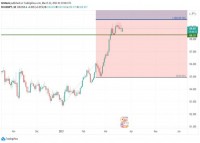|
Opalesque Industry Update - New research by BNY Mellon, an investment management
and investment services, highlights a compliance shortfall among
alternative investment funds (AIFs) on the eve of the deadline for
Alternative Investment Fund Managers Directive (AIFMD) authorisation. While 82 per cent of managers canvassed confirmed the required AIFM structure has been established to meet tomorrow’s July 22 deadline, 44 per cent will not have received authorisation from their local regulator by that date. The new survey highlights that a significant proportion of managers will have work left to complete in respect of key elements of the AIFMD regulations. For example, 31 per cent still need to implement risk and control systems, 36 per cent have yet to update fund documentation, and 38 per cent have yet to appoint a depository. As a consequence of their experiences in respect of AIFMD compliance, the survey indicates that fund managers are now bracing themselves for higher-than-expected levels of cost and complexity when it comes to meeting requirements around the UCITS V regulation, which seeks to align the UCITS regulatory framework with certain aspects of AIFMD and is expected to be transposed into local law in 2016. The new BNY Mellon survey, the third in a series conducted in conjunction with global business consulting firm FTI Consulting over the past year, canvassed 58 firms drawn from across Europe, the United States and Asia that operate, or are considering operating, a fund that would be subject to AIFMD. The survey respondents – comprising a mix of small, medium and large fund managers – collectively hold over $406 billion in assets under management. Thirty two per cent of these managers operate more than five AIFs with 22 per cent of AIFs impacted by AIFMD.
AIFMD lessons and looming UCITs V regulation * Seventy four per cent of respondents expect regulatory reporting, followed by risk and compliance reporting at 58 per cent, to incur the greatest one-off costs, with these two areas expected to account for the majority of ongoing costs associated with AIFMD compliance. * The increased costs to fulfil the regulatory requirements around AIFMD in some cases looks set to fall onto individual funds, impacting total expense ratios (TERs). Thirteen per cent of respondents now expect costs to be passed on to the fund in full. In contrast, no respondents said they would pass on costs in this fashion in BNY Mellon’s previous study on AIFMD readiness, published in January 2014. * In addition, 29 per cent of respondents said they will pass on some of the costs, compared to the study conducted in January 2014, where 26 per cent of those polled said they will pass on some of the implementation costs onto the fund (impacting TER). * Only 39 per cent of those surveyed believe that AIFMD will be either very beneficial or slightly beneficial to their organisation. * Forty seven per cent of managers surveyed believe regulators will be the primary group to benefit from AIFMD, an increase from just one quarter a year ago. * While 39 per cent of respondents believe end investors will benefit from AIFMD, investors will nonetheless now have less choice, with 38 per cent of those polled indicating they plan to merge or close funds. In July 2013, only 21 per cent of AIF managers surveyed expected to have to take action which included closing or merging funds. * Looking forward to the UCITS V Directive, the most prevalent concern among survey participants (37 per cent in both cases) is that UCITS V implementation costs will exceed original expectations, and that compliance will be more complex than anticipated.
Industry playing catching up with AIFMD “Now the authorisation deadline is upon us, the continuing challenge for managers will be to attract new inflows of money into their funds– but AIFMD’s impact is significant and, as our study highlights, causing some funds to question the longer-term feasibility of their business models. We are witnessing a step change taking place within the industry which will have far reaching consequences for funds and investors alike. With UCITS V pending and expected to be even more far-reaching in scope, now is the time for fund managers to start planning and to identify the lessons learned from AIFMD that can then be applied as they look to successfully navigate the changes that will bring around depositary functions, remuneration and administrative sanctions.”
Small fund managers submit to AIFMD with reservations Ahead of tomorrow’s deadline, 90% of sub-threshold managers are either AIMFD ready or have submitted applications to the FCA. This is in spite of the knowledge that doing so to position their funds for future growth will come at a price. 65% of respondents cited the additional cost of becoming an AIFM as the most significant implication of the directive, closely followed by the burden of revised capital adequacy and reporting requirements (53%). Only a quarter of sub-threshold managers have considered restructuring their operations in order to avoid the scope of the directive entirely. Kelly Sheppard, Partner in Moore Stephens’ Financial Services Industry Group, said: “It seems to be the case that smaller firms are having to grin and bear it. The preparedness of sub-threshold managers is no surprise, with the prospect for future growth seemingly outweighing the arduous and costly requirements of the directive. This survey is a clear sign of small firms facing up to the reality of the AIFMD world they now operate in.” |
Industry Updates
Full compliance still some way off as AIFMD authorisation deadline arrives
Monday, July 21, 2014
|
|





 RSS
RSS







